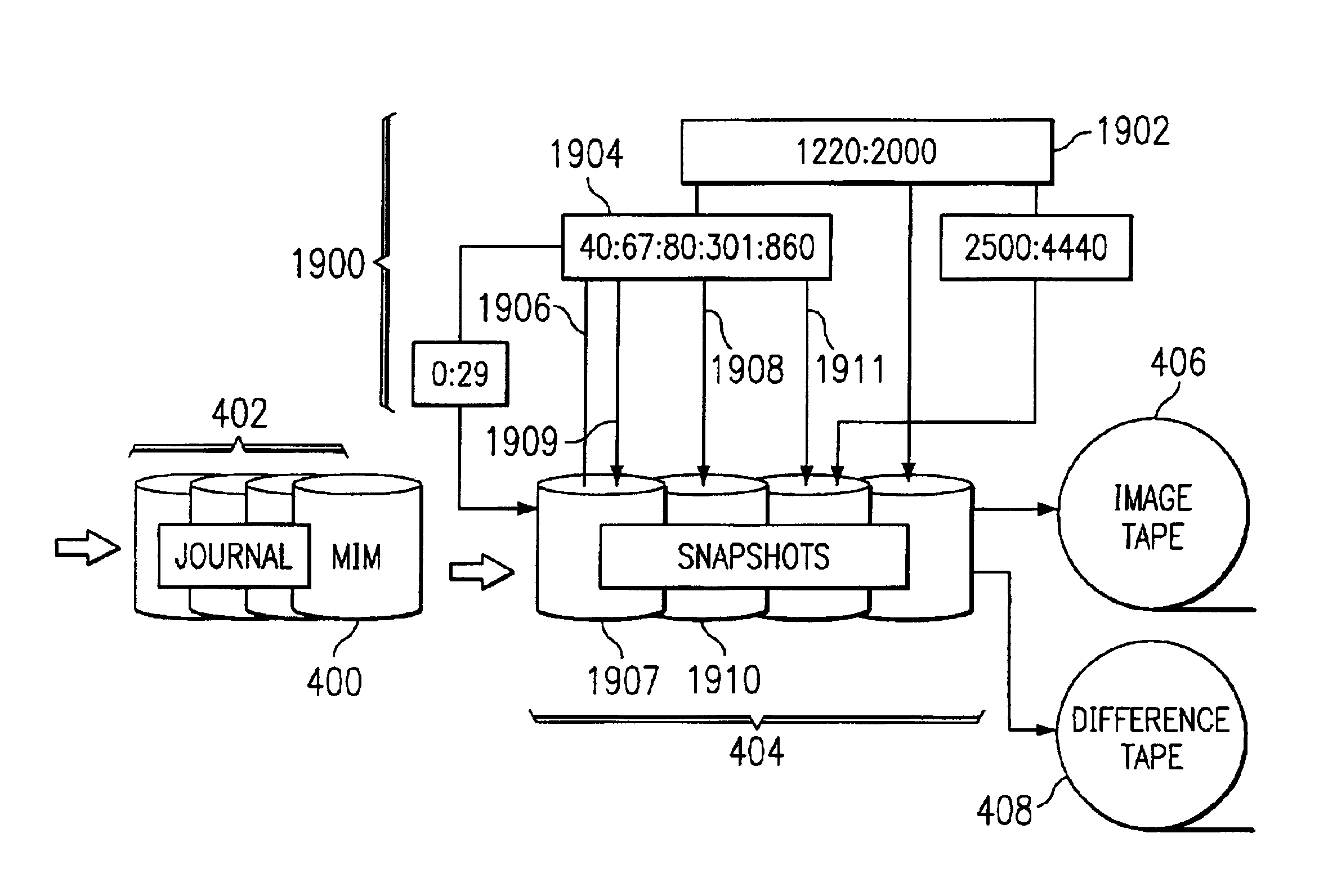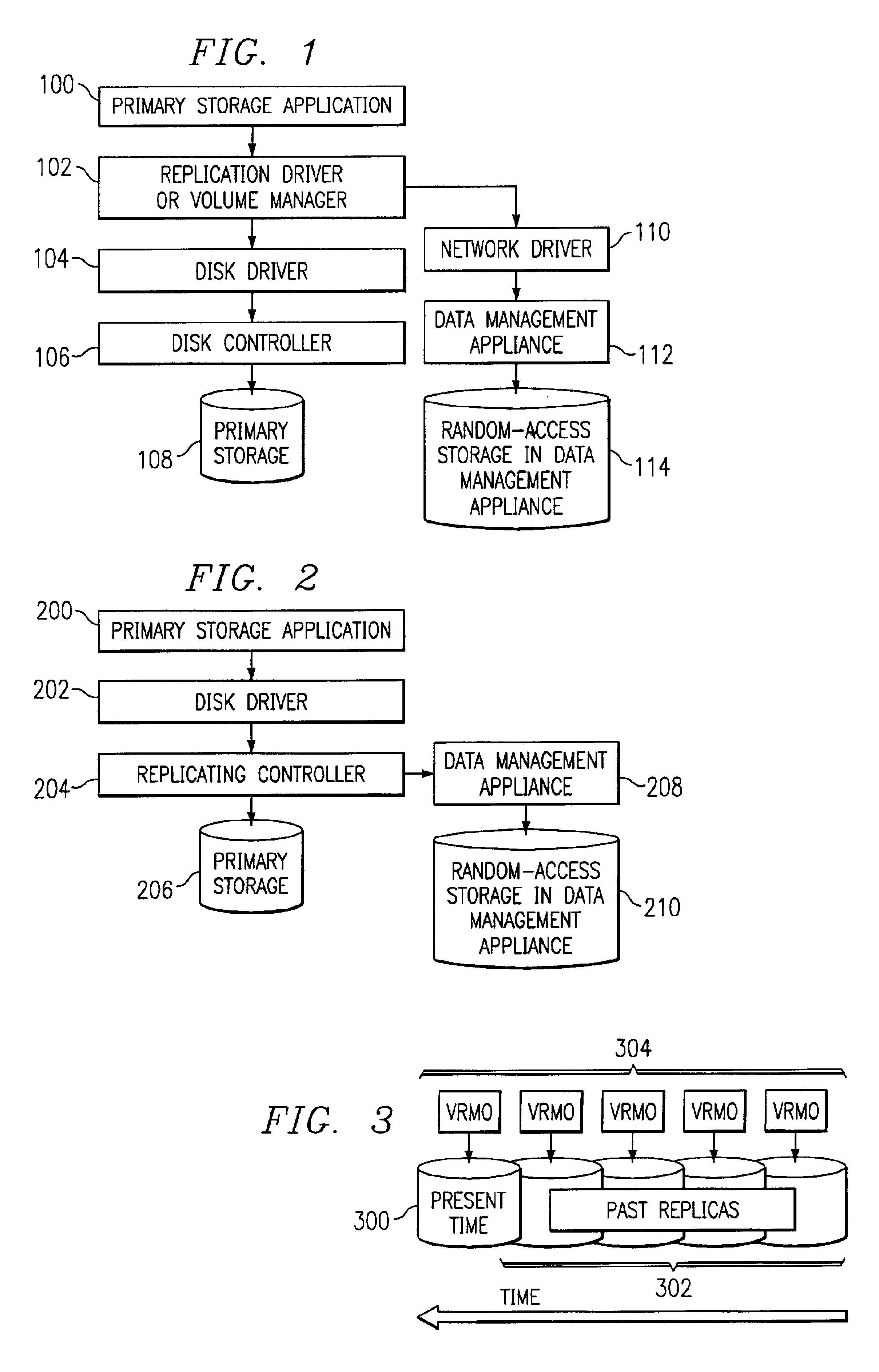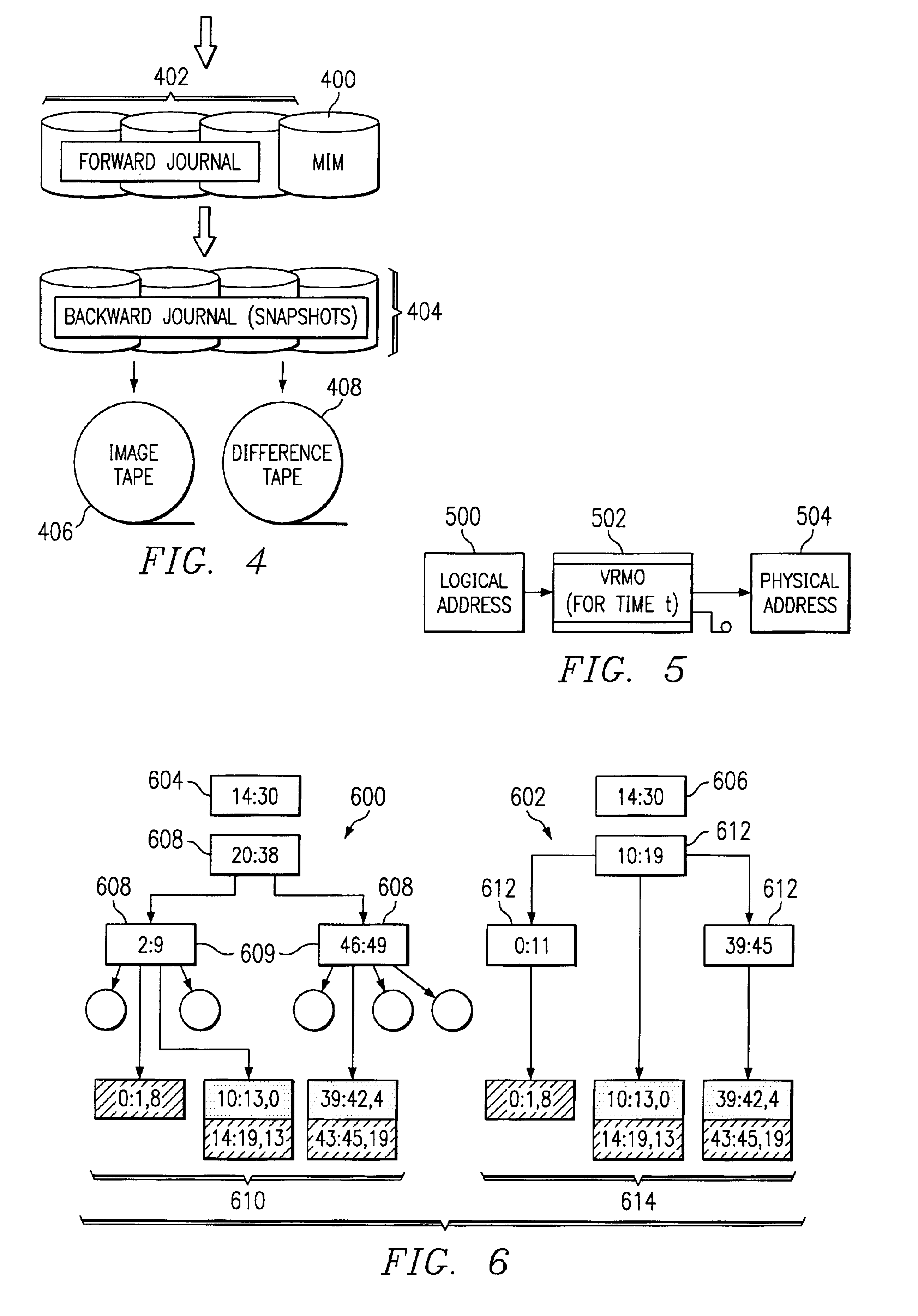Data management appliance
a data management and data technology, applied in the field of data storage and backup systems, can solve the problems of a long time-consuming and laborious backup process, the difficulty of restoring data from tape, and the difficulty of restoring data sequentially to a secondary storage medium such as tape, so as to achieve quick and random-access data recovery
- Summary
- Abstract
- Description
- Claims
- Application Information
AI Technical Summary
Benefits of technology
Problems solved by technology
Method used
Image
Examples
Embodiment Construction
[0041]FIG. 1 is a diagram providing an overall view of the operation of a preferred embodiment of the present invention. A primary storage application 100, residing on a host computer system, submits a command to a replication driver / volume manager 102 to store data to primary storage 108. Replication driver / volume manager 102 relays the request both to disk driver 104 and network driver 110. Disk driver 104 is device driver code that operates disk controller 106, which in turn controls primary storage 108, which is in this case a disk drive, although many different alternative random-access storage devices could be used in place of primary storage 108.
[0042]Network driver 110 is device driver code that controls access to a computer network. Network driver 110 relays the submitted storage command to data management appliance 112, which is located on a network associated with the host computer system. Data management appliance 112 is an intelligent peripheral device that presents the...
PUM
 Login to View More
Login to View More Abstract
Description
Claims
Application Information
 Login to View More
Login to View More - R&D
- Intellectual Property
- Life Sciences
- Materials
- Tech Scout
- Unparalleled Data Quality
- Higher Quality Content
- 60% Fewer Hallucinations
Browse by: Latest US Patents, China's latest patents, Technical Efficacy Thesaurus, Application Domain, Technology Topic, Popular Technical Reports.
© 2025 PatSnap. All rights reserved.Legal|Privacy policy|Modern Slavery Act Transparency Statement|Sitemap|About US| Contact US: help@patsnap.com



